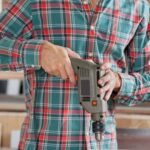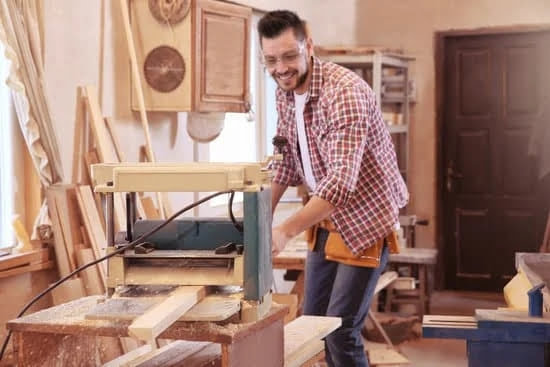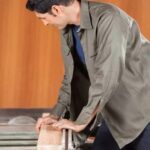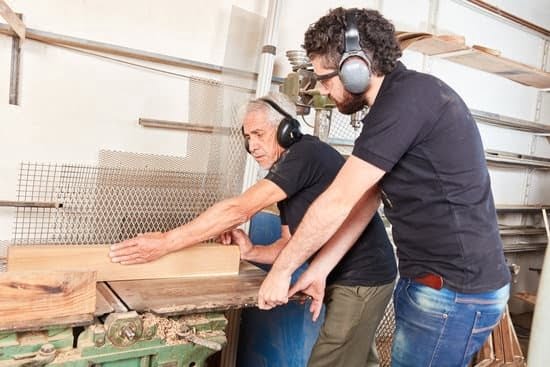Are you wondering how to make a shooting board woodworking? A shooting board is an essential tool in woodworking that helps woodworkers achieve precision and accuracy in their projects. In this article, we will guide you through the process of creating your own shooting board, from understanding its purpose to step-by-step instructions on building and using it effectively.
A shooting board is a simple yet effective tool that aids woodworkers in making precise cuts and ensuring flat surfaces on their workpieces. It consists of a flat board with a fence to guide hand planes or chisels, allowing for accurate trimming and squaring of edges. Whether you are a beginner or an experienced woodworker, a shooting board can greatly enhance the quality of your craft.
Before diving into the construction process, it’s important to understand the purpose and benefits of a shooting board in woodworking. From achieving straight and square edges to creating miters and end grain cuts, a shooting board is versatile and indispensable. Understanding its role will help you appreciate its significance in woodworking and motivate you to master its creation and usage.
Understanding the Purpose and Benefits of a Shooting Board
A shooting board is an essential tool in the woodworking shop, designed to help woodworkers achieve precision and accuracy when planing, trimming, and squaring the edges of a piece of wood. Understanding the purpose and benefits of a shooting board is crucial for any woodworker looking to improve their craft and produce high-quality work.
Purpose of a Shooting Board
The primary purpose of a shooting board is to ensure clean, straight, and square edges on pieces of wood. It provides a stable platform for hand planes or chisels, allowing woodworkers to trim and refine boards with precision. Additionally, shooting boards can be used to cut miters, bevels, and other angled cuts with accuracy, making them a versatile tool in the woodworking shop.
Benefits of Using a Shooting Board
One of the main benefits of using a shooting board is the ability to achieve precise results that are difficult to attain with power tools alone. The controlled nature of hand-tool work on a shooting board allows for finer adjustments and ultimately better craftsmanship.
In addition, using a shooting board can help prevent tear-out and grain blowout on wood surfaces, resulting in cleaner and smoother finishes. Lastly, by using a shooting board consistently, woodworkers can build their hand-tool skills and gain a deeper understanding of how to manipulate wood effectively.
Using this keyword “how to make a shooting board woodworking,” let’s dive into the essential steps on designing and constructing your very own shooting board woodworking.
Essential Tools and Materials Needed for Building a Shooting Board
To build a shooting board for woodworking, you will need a few essential tools and materials to get started. Having the right equipment is crucial in ensuring the success of your project. Here’s a list of the items you will need:
First and foremost, you will need a sturdy and flat base material for your shooting board. This can be made from plywood or MDF, as long as it is free from warping or bowing. Additionally, you will need a piece of hardwood that will act as the fence for guiding your hand plane.
In terms of tools, you will require a hand plane to smooth out the edges of your workpiece. A shooting board plane is ideal for this purpose, but any sharp hand plane with a straight blade can also do the job effectively. You will also need measuring tools such as a square and ruler to ensure accuracy in constructing your shooting board.
Other essential materials include wood glue, screws, or nails for securing the components together. It’s important to choose high-quality fasteners to ensure the durability of your shooting board. Lastly, having sandpaper on hand will allow you to finish off any rough edges and make adjustments as needed.
Now that we’ve covered the necessary tools and materials needed for building a shooting board, let’s move on to the step-by-step guide on how to design and measure a shooting board.
Step-by-Step Guide on How to Design and Measure a Shooting Board
A shooting board is an essential tool in woodworking, especially for precision cutting and shaping of wood. Designing and measuring a shooting board is crucial to ensure that it serves its purpose effectively. In this section, we will provide a step-by-step guide on how to design and measure a shooting board in woodworking.
The first step in designing a shooting board is to determine the size and dimensions based on the types of woodworking projects you typically work on. Consider the length and width of the boards you usually work with, as well as the angles at which you need to make cuts.
Once you have determined the size of your shooting board, make accurate measurements using a tape measure, square ruler, and compass. Take into account any specific angles or bevels needed for your woodworking projects. Additionally, consider the type of material you will be using for the shooting board, whether it’s plywood, hardwood, or MDF.
After measuring and marking your dimensions on the material, use a saw or appropriate cutting tool to carefully cut out the necessary pieces for your shooting board. Take your time with this step to ensure precise and straight cuts that will result in a sturdy and reliable shooting board.
| Tools Needed | Materials Needed |
|---|---|
| Tape measure | Plywood or hardwood |
| Square ruler | Saw |
| Compass | Wood glue |
Detailed Instructions on Assembling and Constructing the Shooting Board
When it comes to woodworking, a shooting board is an essential tool for achieving accurate and precise cuts. In this section, we will provide detailed instructions on how to assemble and construct your very own shooting board. With the right tools and materials, you can easily create a shooting board that will enhance your woodworking projects.
Gather the Necessary Tools and Materials
Before you begin constructing your shooting board, it’s important to gather all the necessary tools and materials. You will need a sturdy base material such as plywood or MDF, a reliable saw for cutting the materials to size, a square for ensuring straight edges, sandpaper for smoothing the surfaces, and clamps for securing the pieces together. Additionally, you may also require a drill and screws depending on the design of your shooting board.
Assembling the Shooting Board
Start by cutting the base material into two pieces – one for the base and one for the side fence. The size of these pieces will depend on your specific needs and preferences. Once you have cut the pieces to size, use a square to ensure that edges are perfectly straight before attaching them together using screws or glue. Make sure that the side fence is secured at a perfect 90-degree angle to the base to ensure accurate cuts.
Adding Finishing Touches
To complete your shooting board, use sandpaper to smooth any rough edges or surfaces. This will ensure that your wood slides smoothly across the shooting board without any obstructions. You may also want to consider adding non-slip grips or rubber feet to prevent the shooting board from moving during use. By paying attention to these small details, you can customize your shooting board for maximum functionality and precision.
By following these step-by-step instructions on assembling and constructing a shooting board, you’ll be well on your way to enhancing the accuracy of your woodworking projects. Whether you’re working on small-scale hobby projects or larger professional ventures, having a well-crafted shooting board is truly invaluable in achieving precise results every time.
Tips and Techniques for Ensuring Accuracy and Precision in Using the Shooting Board
Once you have successfully built your shooting board woodworking, it’s important to understand how to use it effectively to ensure accuracy and precision in your woodworking projects. Here are some tips and techniques for getting the most out of your shooting board:
- Use a sharp hand plane: A sharp hand plane is essential for achieving clean and accurate cuts on your shooting board. Keep your hand plane well-maintained and sharpened to ensure smooth, precise cuts every time.
- Secure your workpiece: When using the shooting board, it’s crucial to securely clamp or hold down your workpiece to prevent any movement while cutting. This will help maintain accuracy and ensure that your cuts are straight and true.
- Precision with pressure: Apply even pressure when pushing the plane along the shooting board. This will help maintain consistent cuts and prevent any wobbling or unevenness in the wood.
In addition to these tips, there are also specific techniques that can help you achieve accurate results when using a shooting board:
- Measure twice, cut once: Before making any cuts with your shooting board, take the time to measure and mark your workpiece accurately. Double-checking your measurements will help prevent errors and ensure precise cuts.
- Practice proper technique: Take the time to practice using the shooting board with scrap wood before working on your actual project. This will help you familiarize yourself with the tool and develop a steady hand for consistently accurate results.
- Pay attention to grain direction: When planing on a shooting board, always work in the direction of the wood grain. This will minimize tear-out and result in cleaner, smoother finishes on your workpiece.
By following these tips and techniques, you can make the most of your shooting board woodworking and achieve professional-quality results in your woodworking projects.
Maintenance and Care for Longevity of the Shooting Board
Building a shooting board in woodworking is a great way to ensure precision and accuracy in your projects. However, once you have built your shooting board, it is important to properly maintain and care for it to ensure its longevity.
To keep your shooting board in good working condition, it is essential to regularly check for any signs of wear and tear. Inspect the surface for any scratches or nicks that may affect the accuracy of your cuts. Additionally, make sure that the fences and stops are still securely in place and not loose or wobbly.
One important aspect of maintenance is keeping the shooting board clean. Sawdust and debris can accumulate on the surface and affect the smoothness of your cuts. Regularly clean the board with a brush or compressed air to remove any build-up.
Proper storage is also crucial in maintaining the longevity of your shooting board. When not in use, store it in a dry and cool place to prevent warping or damage from moisture. Additionally, consider covering it with a protective cloth or tarp to prevent dust from settling on it.
| Aspect | Recommendation |
|---|---|
| Check for wear and tear | Regularly inspect for scratches or nicks on the surface, loose fences, or stops |
| Cleanliness | Regularly clean with a brush or compressed air to remove sawdust and debris |
| Storage | Store in a dry and cool place, cover with protective cloth when not in use |
Creative Ideas for Customizing and Personalizing Your Shooting Board
Once you have built your shooting board, there are numerous creative ways to customize and personalize it to fit your needs and style. One popular option is to add custom handles or knobs to the shooting board for easy gripping and maneuvering. This not only adds a personal touch but also makes the shooting board more functional and ergonomic.
Another idea is to incorporate storage options into the shooting board design. You can add compartments or drawers to store small woodworking tools, such as chisels, screwdrivers, or measuring tapes. This feature not only adds convenience but also helps keep your workspace organized.
You can also consider adding protective elements to the shooting board, such as rubber feet or a non-slip mat, to prevent it from sliding during use. Additionally, adding a built-in adjustable stop can enhance the versatility of the shooting board by allowing you to make precise cuts at different angles.
By customizing and personalizing your shooting board, you can create a tool that not only serves its intended purpose but also reflects your individuality as a woodworker. Whether it’s through decorative elements or functional enhancements, there are endless possibilities for making your shooting board truly one-of-a-kind.
Conclusion and Final Thoughts on the Importance of a Shooting Board in Woodworking
In conclusion, a shooting board is an essential tool in woodworking that offers precision and accuracy when working with wood. By properly understanding the purpose and benefits of a shooting board, woodworkers can greatly improve the quality of their projects. The step-by-step guide provided in this article demonstrates how to design, measure, assemble, and construct a shooting board using essential tools and materials.
As we have seen, the key to creating a successful shooting board lies in careful planning, accurate measurements, and attention to detail during the construction process. Additionally, it is important to emphasize the maintenance and care of the shooting board for longevity and consistent performance. By implementing the tips and techniques outlined here, woodworkers can ensure that their shooting board remains in top condition for years to come.
Finally, customization offers an opportunity for woodworkers to personalize their shooting boards according to their preferences or specific project needs. Whether it’s adding a fence, incorporating storage features, or applying unique finishes, creativity knows no bounds when it comes to making a shooting board your own.
Overall, mastering the art of creating and using a shooting board is an invaluable skill that enhances precision and efficiency in woodworking. With dedication and practice, woodworkers can take their craft to new levels with this indispensable tool at their disposal.
Frequently Asked Questions
What Is the Best Wood for Shooting Board?
The best wood for a shooting board is typically hardwood like maple or birch. These types of wood are strong, stable, and can withstand the force of planing without easily getting damaged.
How Do You Make a Shooting Board for Planning?
To make a shooting board for planing, you will need a flat piece of wood as a base, a strip of hardwood attached at a 90-degree angle to act as a guide for your hand plane, and some non-slip material to keep the board steady.
What Is a Shooting Board in Woodworking?
In woodworking, a shooting board is a tool used in conjunction with a hand plane to accurately trim and square up the edges of boards. It provides support for the workpiece and ensures that cuts are straight and true. This tool is essential for creating precise joinery in woodworking projects.

Hi everyone! I’m a woodworker and blogger, and this is my woodworking blog. In my blog, I share tips and tricks for woodworkers of all skill levels, as well as project ideas that you can try yourself.





